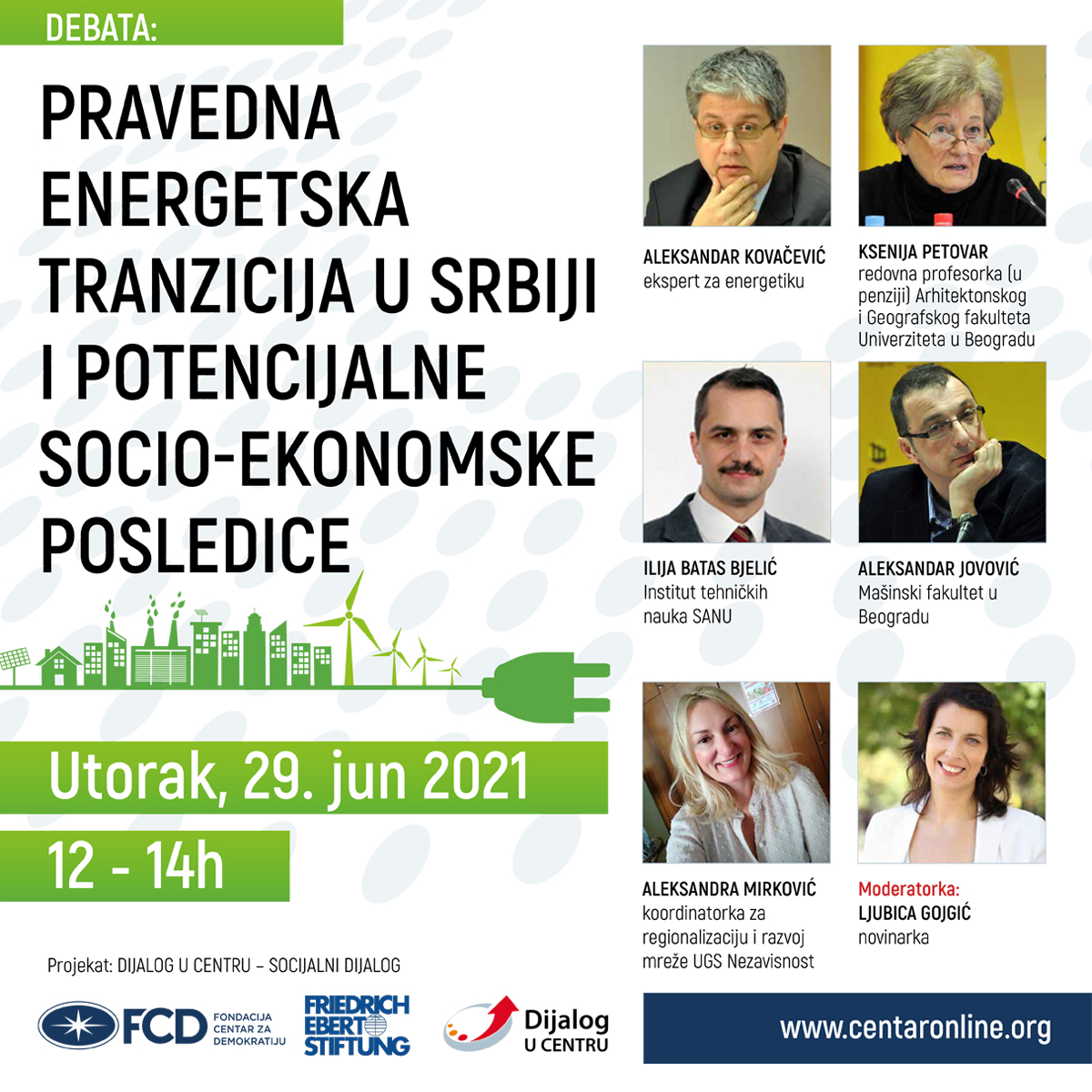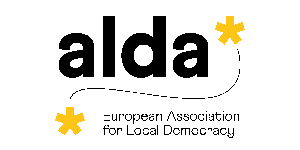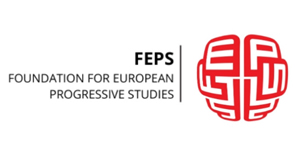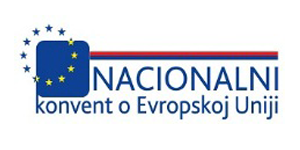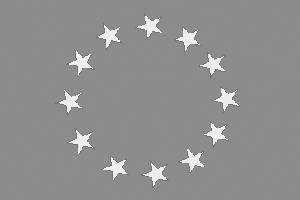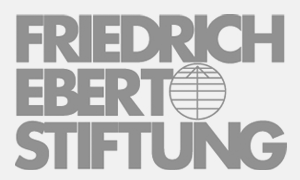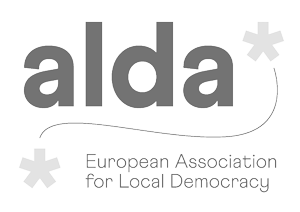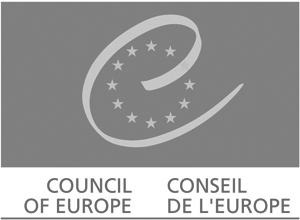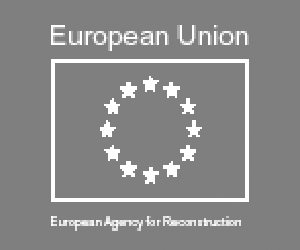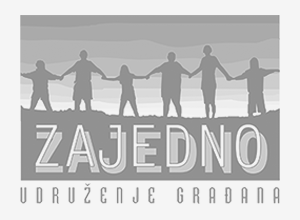Fair Energy Transition in Serbia and Potential Social and Economic Consequences debate
CENTER DIALOGUE – SOCIAL DIALOGUE
On 29 June 2021, in cooperation with the Friedrich Ebert Foundation, the Center for Democracy Foundation organised a debate entitled Fair Energy Transition in Serbia and Potential Social and Economic Consequences.
What does ‘fair energy transition’ mean? Is everything in Serbia that includes the idea of ‘transition’ immediately doomed to failure? Has the environment become issue number one globally? Where does Serbia stand on this path and are we ready (or not) to make changes in this area? How many jobs will be lost, and how many new jobs will potentially be made available? Is the suspension of work on the construction of Kolubara B and worker protests as a result of such a decision, an introduction to energy transition? Will political interests or the voice of the professional community prevail? Is there a right way for all stakeholders in Serbia to approach this topic? Will we once again witness the ‘battle’ between civil and the government sectors?
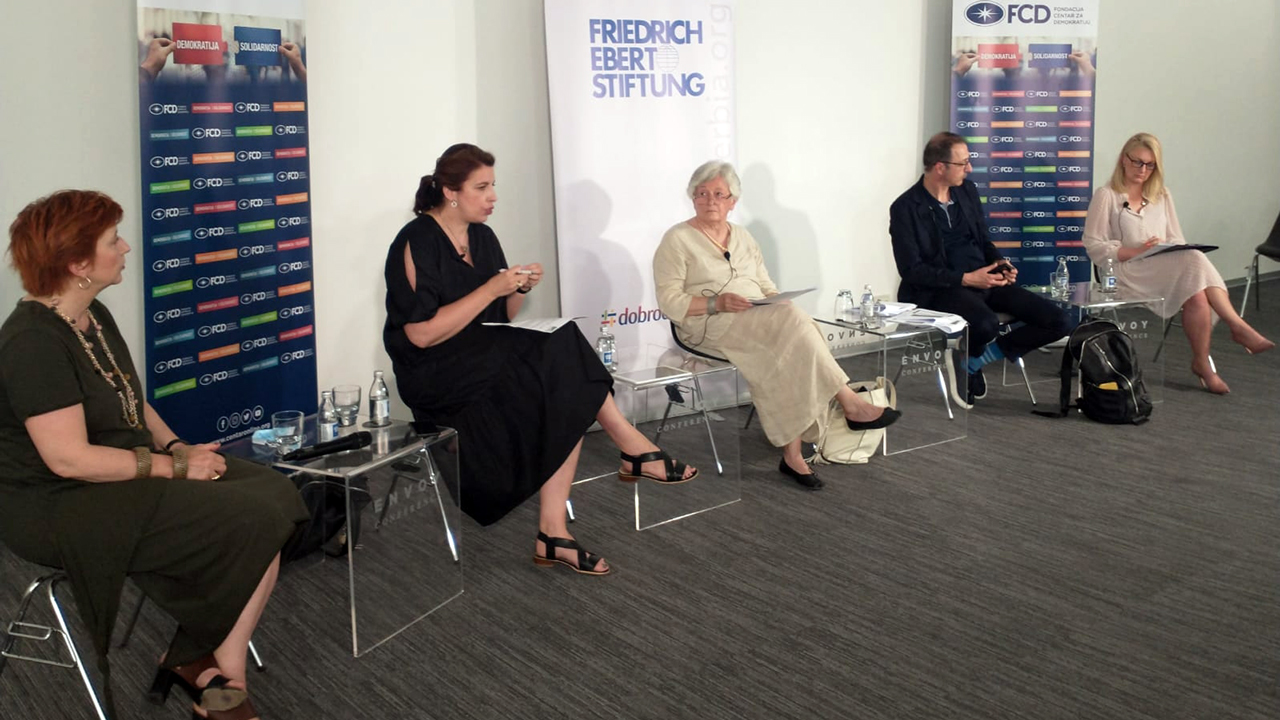
Keynote speakers during the debate included: Aleksandar Kovačević, Energy Expert; Ksenija Petovar, Full Prof. (retired) Faculties of Arhitechture and Geography, University of Belgrade; Ilija Batas Bjelić (Institute of Technical Sciences of SANU); Aleksandar Jovović, Faculty of Mechanical Engineering in Belgrade; Aleksandra Mirković, Coordinator for Regionalisation and Development of the United Branch Trade Union Independence Network, and the discussion was moderated by Ljubica Gojgić, Journalist.
Executive Director, Center for Democracy Foundation, Nataša Vučković, said that the CDF deals with this subject as part of one of our main topics – sustainable economic and social development and the defence of economic and social rights, of course. Transition from one type of economic policy to another requires a great deal of resources and coordination between all actors participating in such a process. This brings to question: what consequences will fair energy transition have on society, in particular, on vulnerable groups.
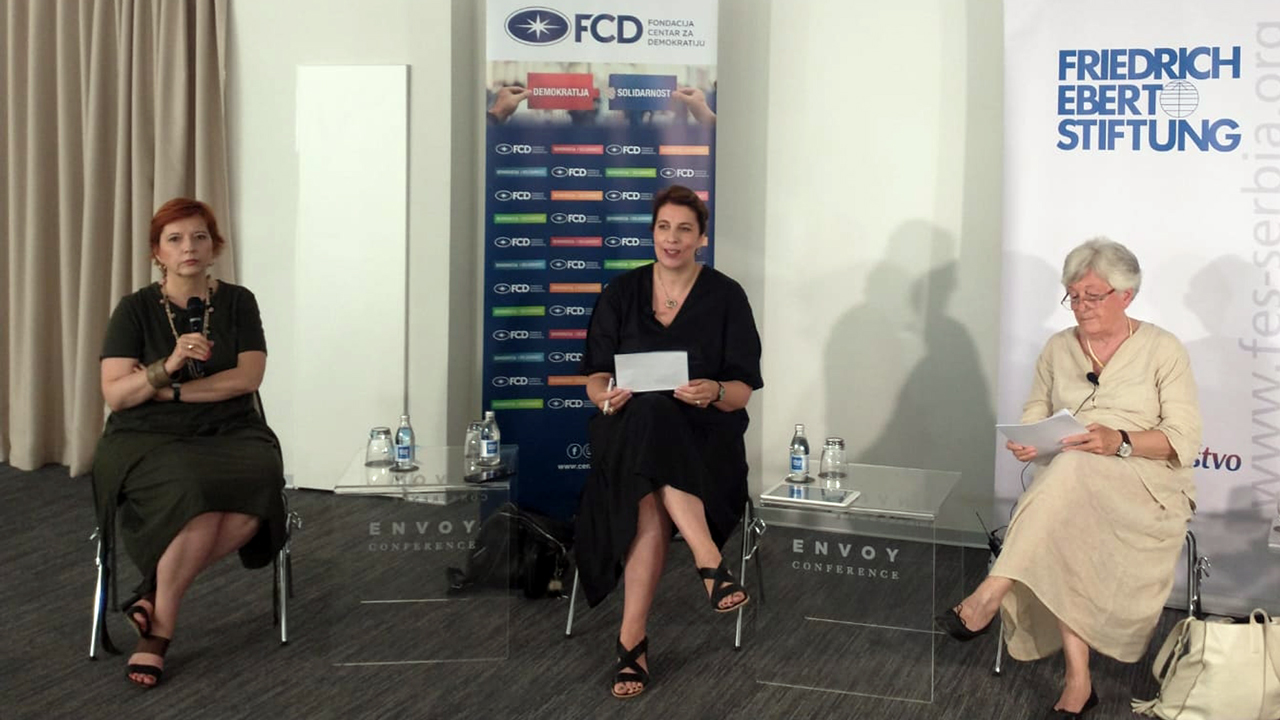
Therefore, our aim is to see the manner in which the social and economic situation of vulnerable groups will be protected or threatened and put an end to these negative trends by creating public policy that will mitigate this risk. It is vital for all of us to revitalise social dialogue, which is very weak in this country, as all the reports of the European Commission in recent years clearly show.
Aleksandar Kovačević (Energy Expert) has emphasised that our population is paying the price of energy inefficiency. Serbia has a coal industry that has never been competitive, in all of history, since the time coal began to be used for industrial purposes. Today, Serbia has unusually expensive district heating, uncommonly expensive gas, and exceptionally pricy firewood. The end result of which is an economy that is barely making ends meet, where employment is low and staff are dissatisfied. Regionally, the situation is ‘equally horrifying’.
Ksenija Petovar (Full Prof., retired, Faculties of Architecture and Geography, University of Belgrade) estimates that energy transition will have many consequences – conditionally both negative and positive. The public needs to be included more and needs to be educated, they have the right to an environment, the protection of their civil, social and economic rights, to organise expert debates, to respond to professional argumentation, to find answers that will help define a consistent energy policy.
Ilija Batas Bjelić (Institute of Technical Sciences of SANU) highlighted that transition is historically inevitable, as it happens in places where the existing situation is not economically sustainable. The true cost of electricity obtained from coal is much higher than you may think and what you were taught in school, at university. Any form of rationalisation will not lead to any solution that is economically sustainable. Fair transition is ideal, but it is much more realistic to talk about fair transition and something that would ensure long term economic efficiency.
Aleksandar Jovović (Faculty of Mechanical Engineering in Belgrade) highlighted that the goal is to achieve climate neutrality, and one part of this path is to transition from energy sources based on fossil raw materials to other energy sources. Energy transition must be implemented for health reasons but also for the sake of European commitments and our path towards the European Union. Together with the EU, the Energy Community has initiated a project for the Western Balkans, the Sophia Declaration on the Green Agenda with 11 programmes.
Aleksandra Mirković (Coordinator for Regionalisation and Development of the United Branch Trade Union Independence Network) urged the trade union be involved in the process of drafting documents that the government will adopt in connection with energy transition, and special attention should be paid to the protection of socially vulnerable groups. We in the trade union are preparing a series of training sessions for our members so that they may become familiar with the process of fair transition and to provide them with support, as transition must be socially responsible.
We organised the following debate in collaboration with the Friedrich Ebert Foundation – CENTER DIALOGUE – SOCIAL DIALOGUE.
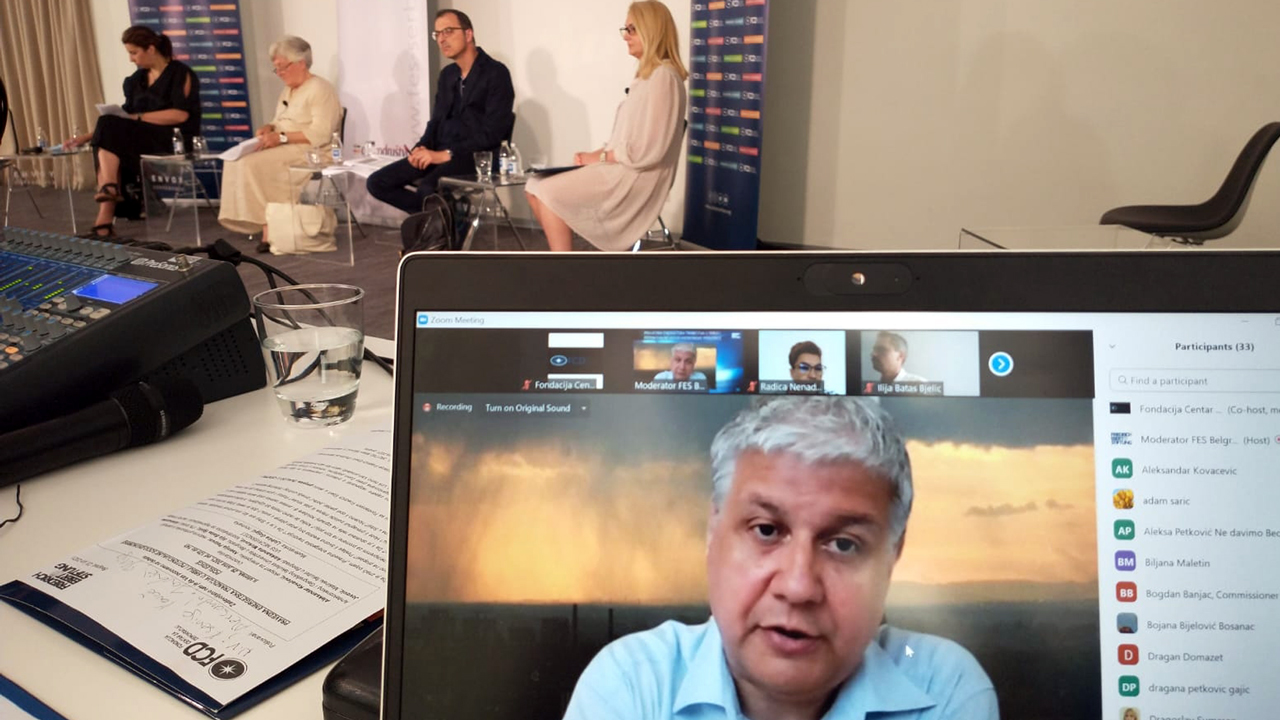
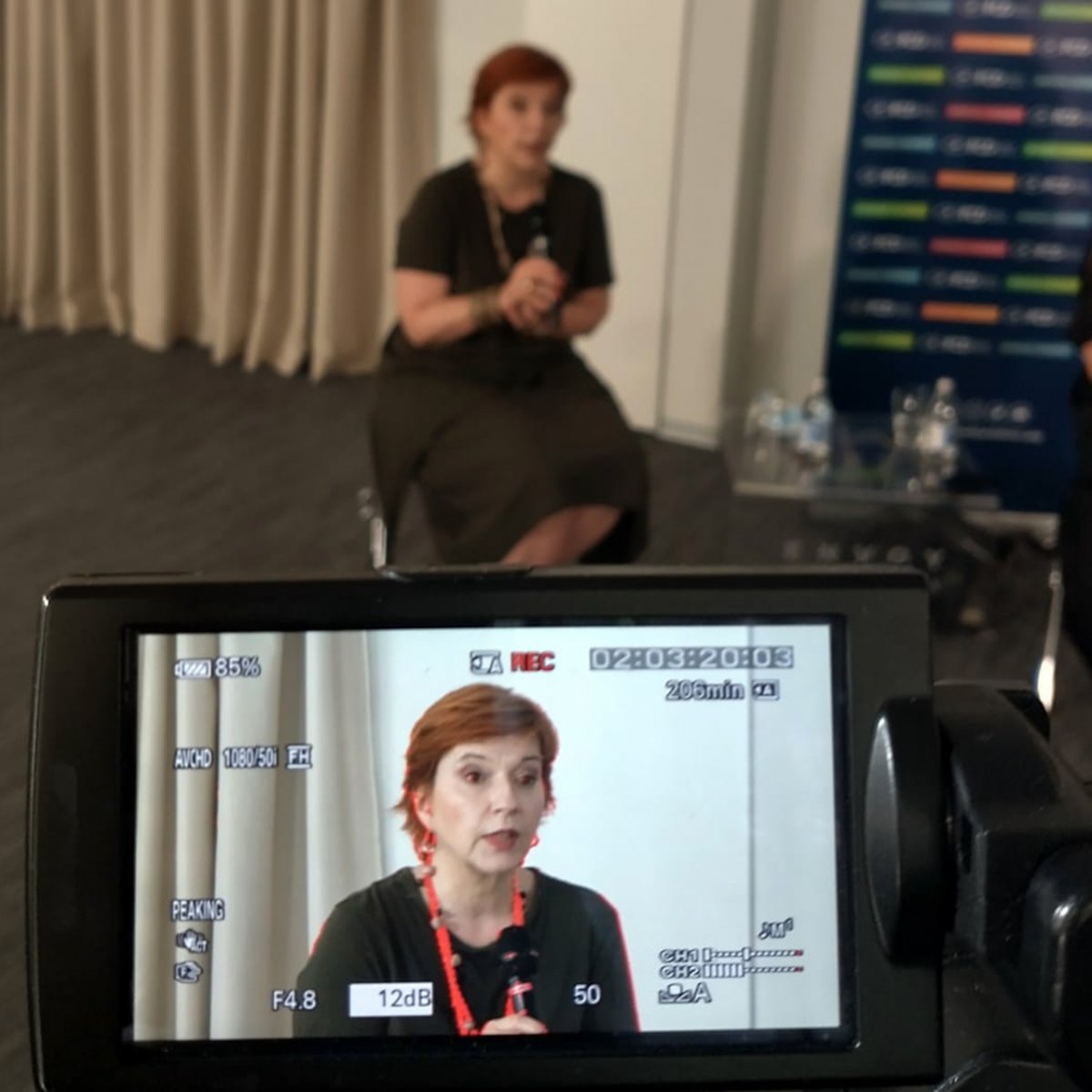
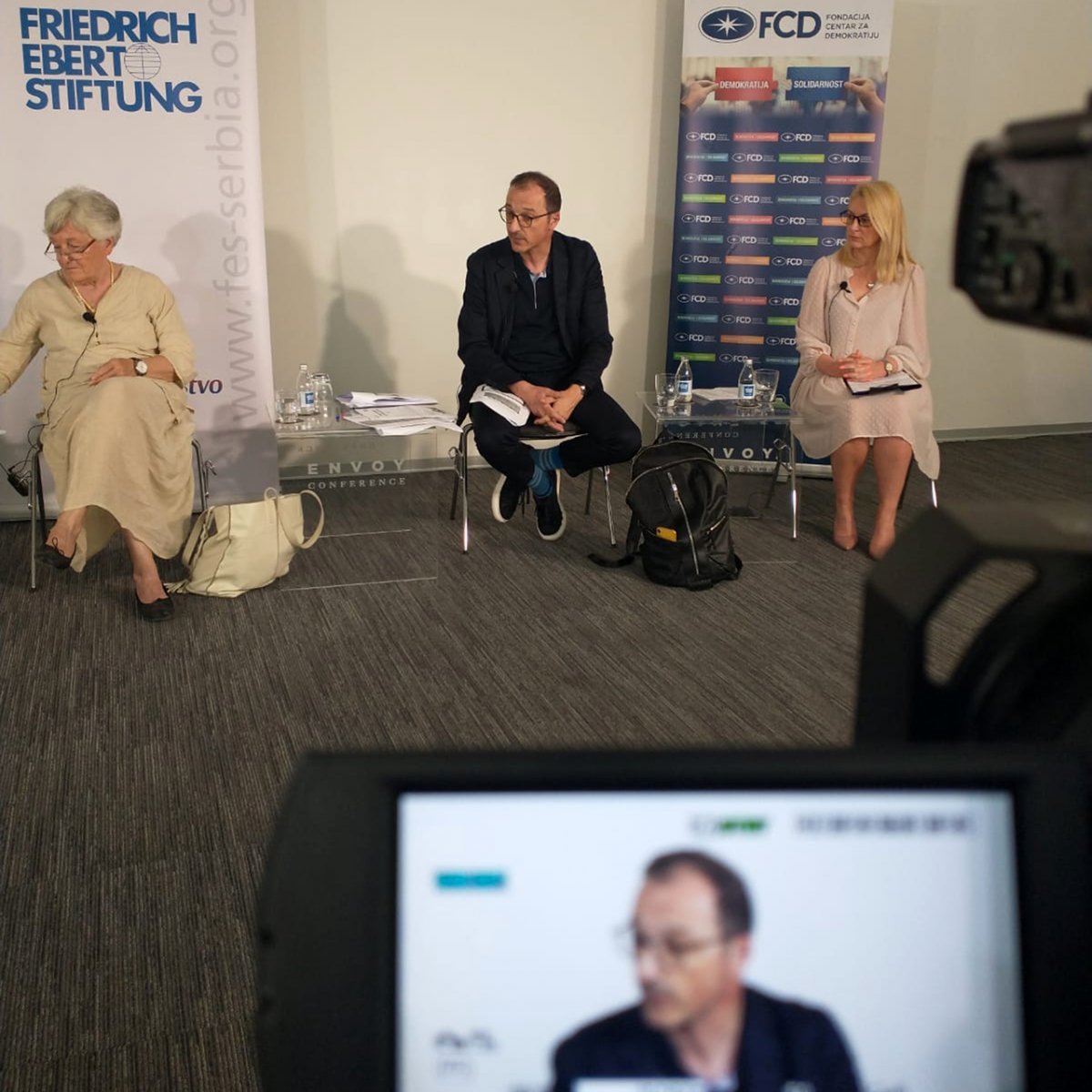
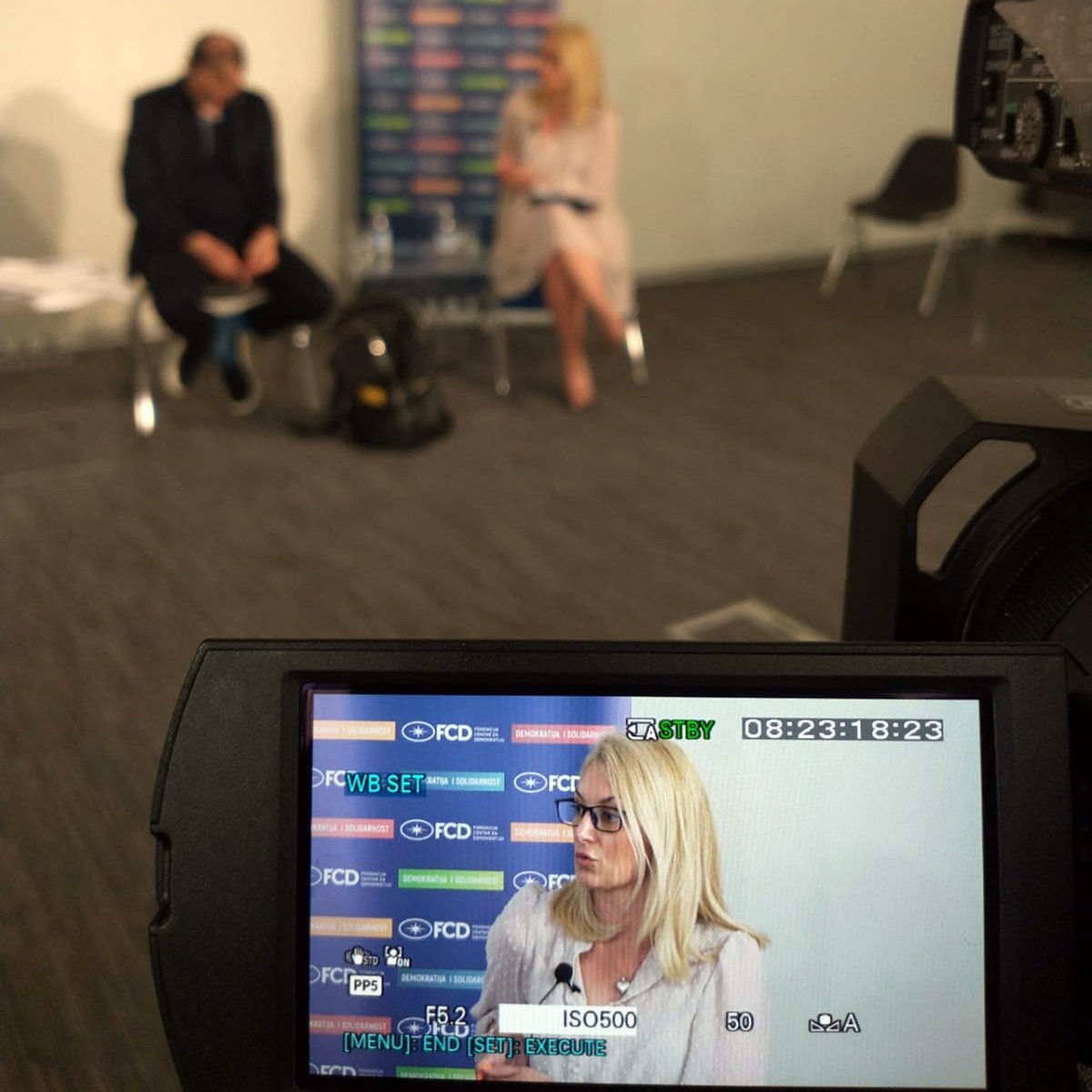
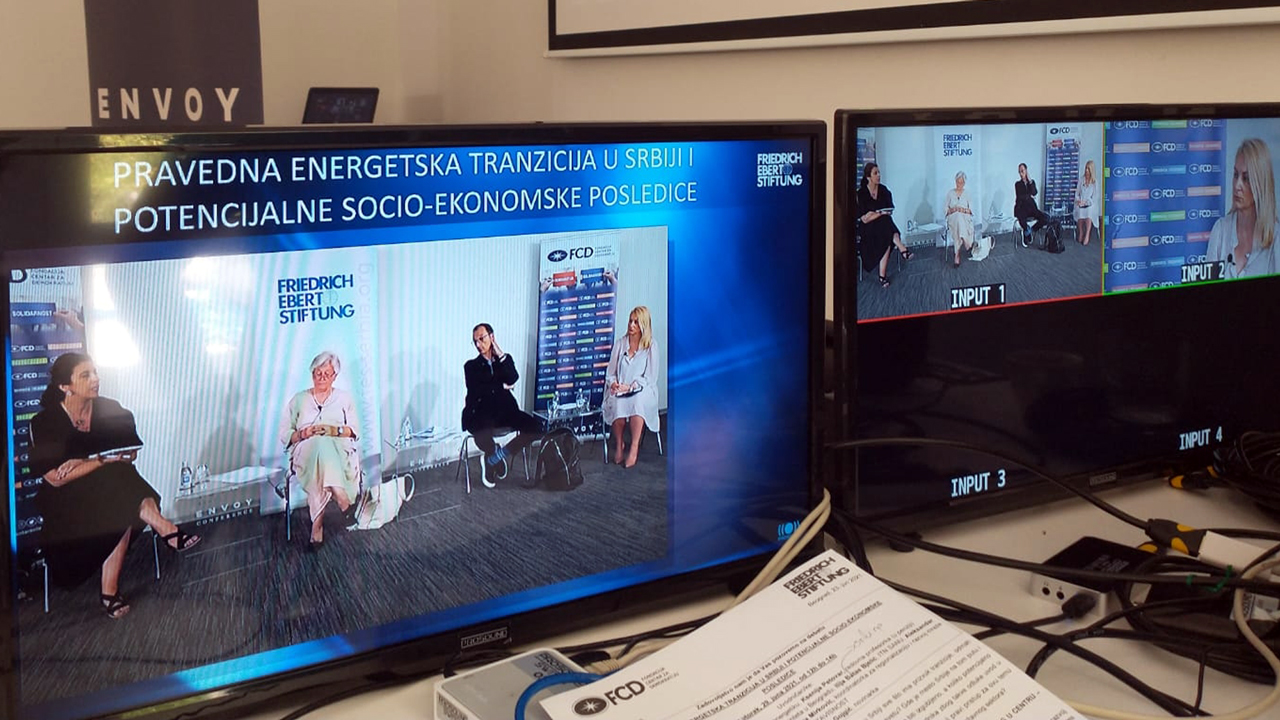
Center for Democracy Foundation
Video
Fair Energy Transition in Serbia and Potential Social and Economic Consequences debate
PUBLICATIONS
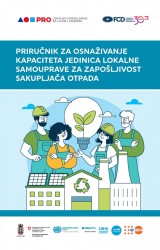 Manual for Strengthening the Capacities of Local Self-Government Units for the Employability of Waste Pickers
Manual for Strengthening the Capacities of Local Self-Government Units for the Employability of Waste Pickers
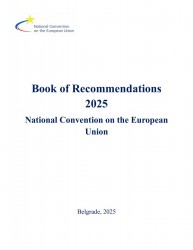 NCEU Book of Recommendations 2025
NCEU Book of Recommendations 2025
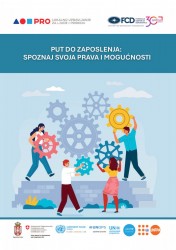 Manual “The Path to Employment: Get to Know Your Rights and Opportunities”
Manual “The Path to Employment: Get to Know Your Rights and Opportunities”
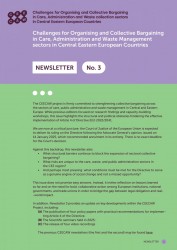 Challenges for Organising and Collective Bargaining in Care, Administration and Waste collection sectors in Central Eastern European Countries
Challenges for Organising and Collective Bargaining in Care, Administration and Waste collection sectors in Central Eastern European Countries
 Public Policy Proposals – Collective Bargaining (CEECAW)
Public Policy Proposals – Collective Bargaining (CEECAW)
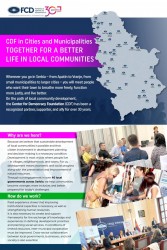 CDF in Cities and Municipalities: Together for a Better Life in Local Communities
CDF in Cities and Municipalities: Together for a Better Life in Local Communities
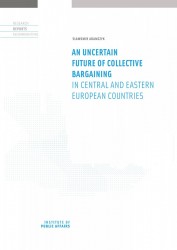 Comparative reports on collective bargaining - CEECAW
Comparative reports on collective bargaining - CEECAW
 POLITEIA – Regional School for Youth Participation 2025 (leaflet)
POLITEIA – Regional School for Youth Participation 2025 (leaflet)
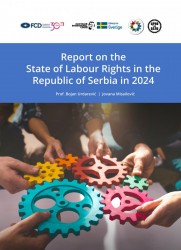 Report on the State of Labour Rights in the Republic of Serbia in 2024
Report on the State of Labour Rights in the Republic of Serbia in 2024
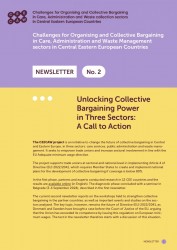 Unlocking Collective Bargaining Power in Three Sectors: A Call to Action
Unlocking Collective Bargaining Power in Three Sectors: A Call to Action
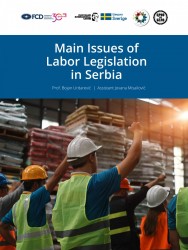 Main Issues of Labor Legislation in Serbia
Main Issues of Labor Legislation in Serbia
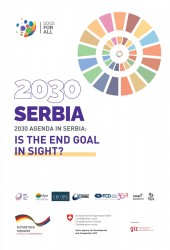 New Monitoring Report by the “SDGs for All” Platform: Is the End Goal in Sight?
New Monitoring Report by the “SDGs for All” Platform: Is the End Goal in Sight?
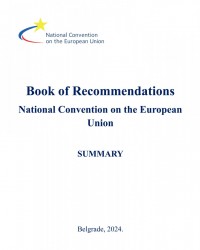 NCEU Book of Recommendations 2024 (Summary)
NCEU Book of Recommendations 2024 (Summary)
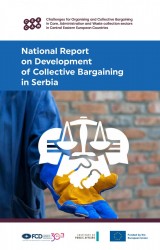 National reports on collective bargaining in Serbia - CEECAW
National reports on collective bargaining in Serbia - CEECAW
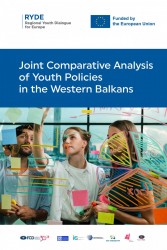 The Comparative Analysis of Youth Policies in the Western Balkans (WB)
The Comparative Analysis of Youth Policies in the Western Balkans (WB)
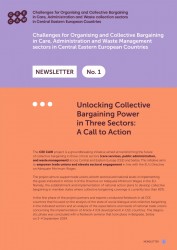 Unlocking Collective Bargaining Power in Three Sectors: A Call to Action
Unlocking Collective Bargaining Power in Three Sectors: A Call to Action
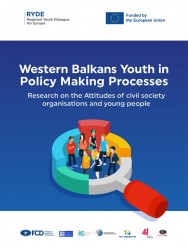 Western Balkans Youth in Policy Making Processes
Western Balkans Youth in Policy Making Processes
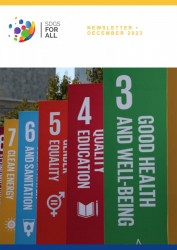 SDGs for All Platform newsletter (December 2023)
SDGs for All Platform newsletter (December 2023)


